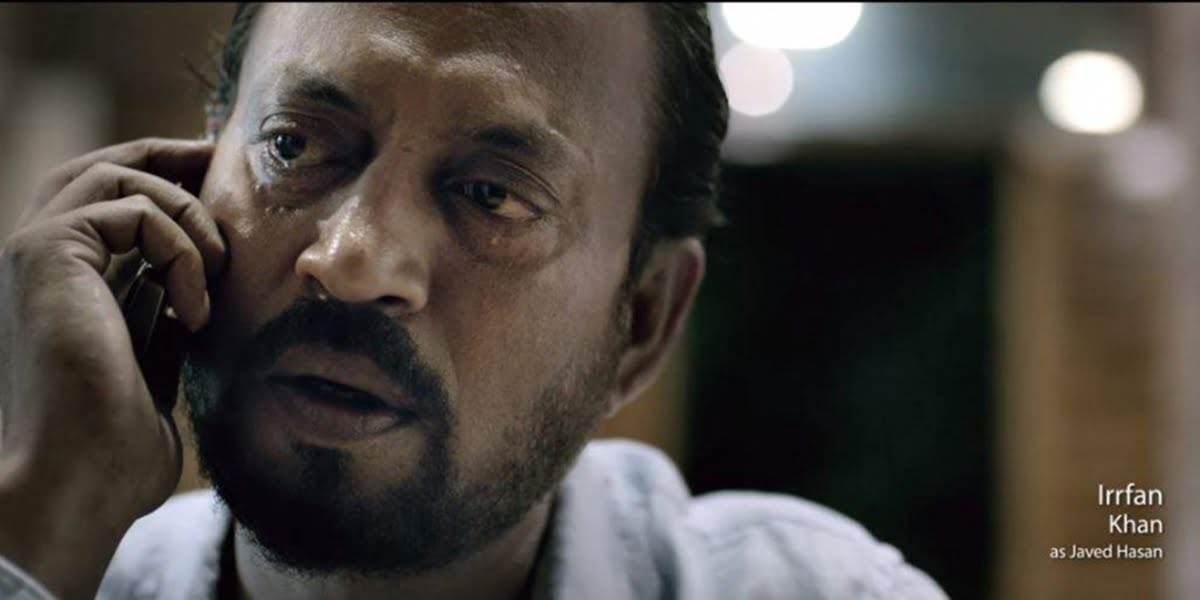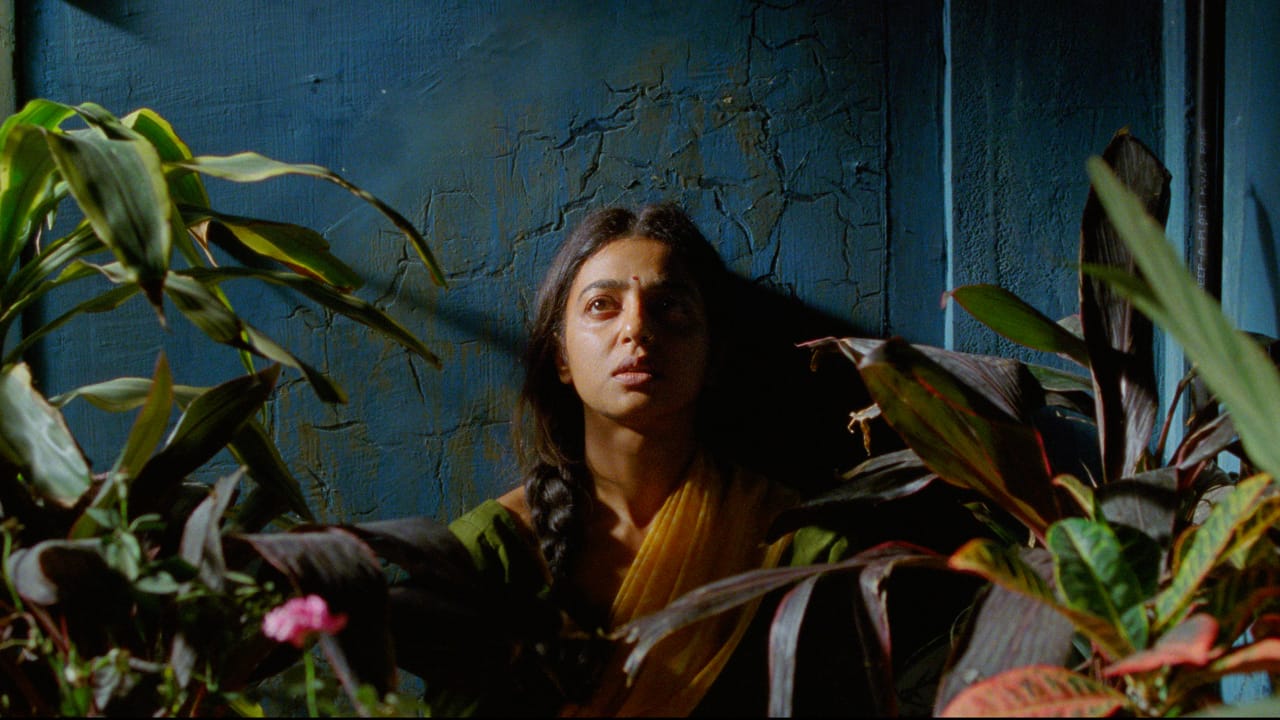A much explored trope in literature and cinema has been that of the infidelity-riddled life of the artistic genius. Be it life seeping into culture or the other way round, the condition of being the male artistic genius warrants marital or romantic infidelity. From Picasso to Eliot, culture has normalised women being used as artistic vessels, ‘muse’ being the popular term used, for channeling the creative powers of the artist. Film and literature from Joyce to Felini have employed multiple women to act as much needed muses for the artist to realise the process of self actualisation. Hence, that a male creative genius cannot do without a few affairs here and there, or dozens of them in succession, outside of marriage or unmarried has been normalised as a phenomenon.
Doob: No Bed Of Roses, released in 2017, too deals with the same trope and examines it from the perspective of the male genius, albeit from the perspective of a different set of emotions. Here the artist’s infidelity is the field for battle between desire and melancholy, not a necessity towards creative evolvement. Irrfan Khan plays the role of Javed Hasan in Doob: No Bed Of Roses, a famous and acclaimed director who is also an extremely doting father to two children and a once passionate husband. Javed’s name soon starts appearing in the media tabloids in association with a rumoured affair with his daughter’s friend and the heroine for his next film, Nitu. Soon Javed divorces his wife to marry Nitu and start a family with her, in the process incurring bitter hatred and antipathy from his wife and children. It is this choice of Javed’s that causes his steady descent into a grief so heavy to cause his mortal demise.
Also read: Film Review: Karnan — Humanising The ‘Other’
Doob: No Bed Of Roses portrays the issue in a very interesting way as it remains unknown all throughout, what exactly was the emotion that ties up Javed and Nitu‘s socially abnormal relationship. From the very start of the scandal and spreading of the news about his rumoured affair, Javed is irritated and angry, perceives the whole matter as a lie and attempt at assassinating his image. He steadily keeps convincing his wife of his perspective till the fights between them start getting so bitter that they move to separate houses.
The only scene in Doob: No Bed Of Roses that shows any level of attraction that Javed might feel towards Nitu is when in one of Javed‘s turbulent nights rife with familial troubles and tensions, Nitu comes to secretly visit him at night and stubbornly sits at the window sill smoking a cigarette as Javed initially presents a wall of resistance towards her. Soon Javed joins in and the two share drags from the same cigarette for almost the entire night. Javed‘s desire for his daughter’s friend is palpable, yet not explicit just like the fact that his marriage or love for his previous wife has run dry. The two however, end up divorcing each other and Javed moves into his new home with his new wife.

Mustofa Sarwar Farooki’s handling of Javed‘s predicament in Doob: No Bed Of Roses is what deserves applause. Javed is torn between desire and the inherent masculine inclination towards seeking adventure on the outside, and the comfort and certainty of the ordained and legitimised social structure of relationships. Javed‘s dilemma is in fact, a very inherently masculine one: where men always choose the outside over the home. Trying to navigate desire at an age where he has bonds of deeper and more secure relationships already formed, Javed is faced with an inescapable enemy; grief in Doob: No Bed Of Roses.
Javed‘s ex wife Maya receives less screen space as compared to him yet it is her strength of spirit that shines throughout the screen time devoted to her. Javed‘s grief, confusion and loss is all pervasive and non-navigable. Maya is the woman ingrained with the generational trauma of her gender to cope with disloyal, inattentive, non-attached husbands. Or ones that are quick to lose interest or find easy replacements. It has taught her to invest in her home with her entire being. It has also taught her to move on swiftly when that home plays the part of the treacherer, as it very often does. Hence, she is quick to detach. Quick to wade through an initially catastrophic seeming storm. She is quick to anchor herself to life in Doob: No Bed Of Roses. This is where Javed fails. His choice of the alien lure of desire and its distance from the cushion of norm and structure details him and plunges him into an unfathomable sea of melancholy.
Also read: Film Review: Nayattu — Where The Police Is The Literal Instrument Of The State
Soon, Javed perishes. However, he has never been regretful of his choice. Never been disrespectful to his new young wife. Yet never been able to get over the sadness causes by his children when they shunned him for life. Perhaps the most intense scene of Doob: No Bed Of Roses is when Maya receives the news of Javed‘s death. She doesn’t scream, doesn’t shout, doesn’t react, and receives the news as one would receive information about grocery or laundry. She doesn’t feel sad. In fact, she feels free, to be able to imagine her dead husband as part of herself, now that no one owns his mortal form.
Death restores Javed with his lost dignity, his lost value to the people most important to him, his erstwhile family, his daughter and son.
In one lens, Doob: No Bed Of Roses is a beautiful rendition of how social choices are quite often and quite invisibly gendered. And how the strength of the spirit owes more to the cause of femininity. One doesn’t feel angry with Javed while watching the film, but one definitely feels angry at all that is happening. The motivation for Nitu‘s choices are delved into shallowly amidst the places where the film stands disadvantaged. It is minorly hinted at that all Nitu ever wanted has been an all encompassing father figure as she has seen her friend (Javed’s daughter) grow under the shelter of ever since childhood. All she wants is a shelter, and the only one she has obsessed over since she was a kid. However, the director could have shed a more empathetic umbrella over this character.
The film’s focus stays on Javed and his fragility and confusion. Stays on his all pervasive grief. Stays on his weakness to follow up his choices. Stays on his strength to follow up his choices. At the end of Doob: No Bed Of Roses, one can’t help but feel equally helpless as the protagonist in the invisible chains of instincts and impulses that hold us as the humans we are. And in this dealing is where perhaps the director shows the humanness of gendered divisions of all life and the helplessness that comes in the absence of its realisation.
Featured image source: MyNation
About the author(s)
Samriddha is presently pursuing her Master’s degree in Literature in the final year from University of Calcutta. She is interested in writing and journalism. You can find her on Instagram.





Nice article and keep up the good work……